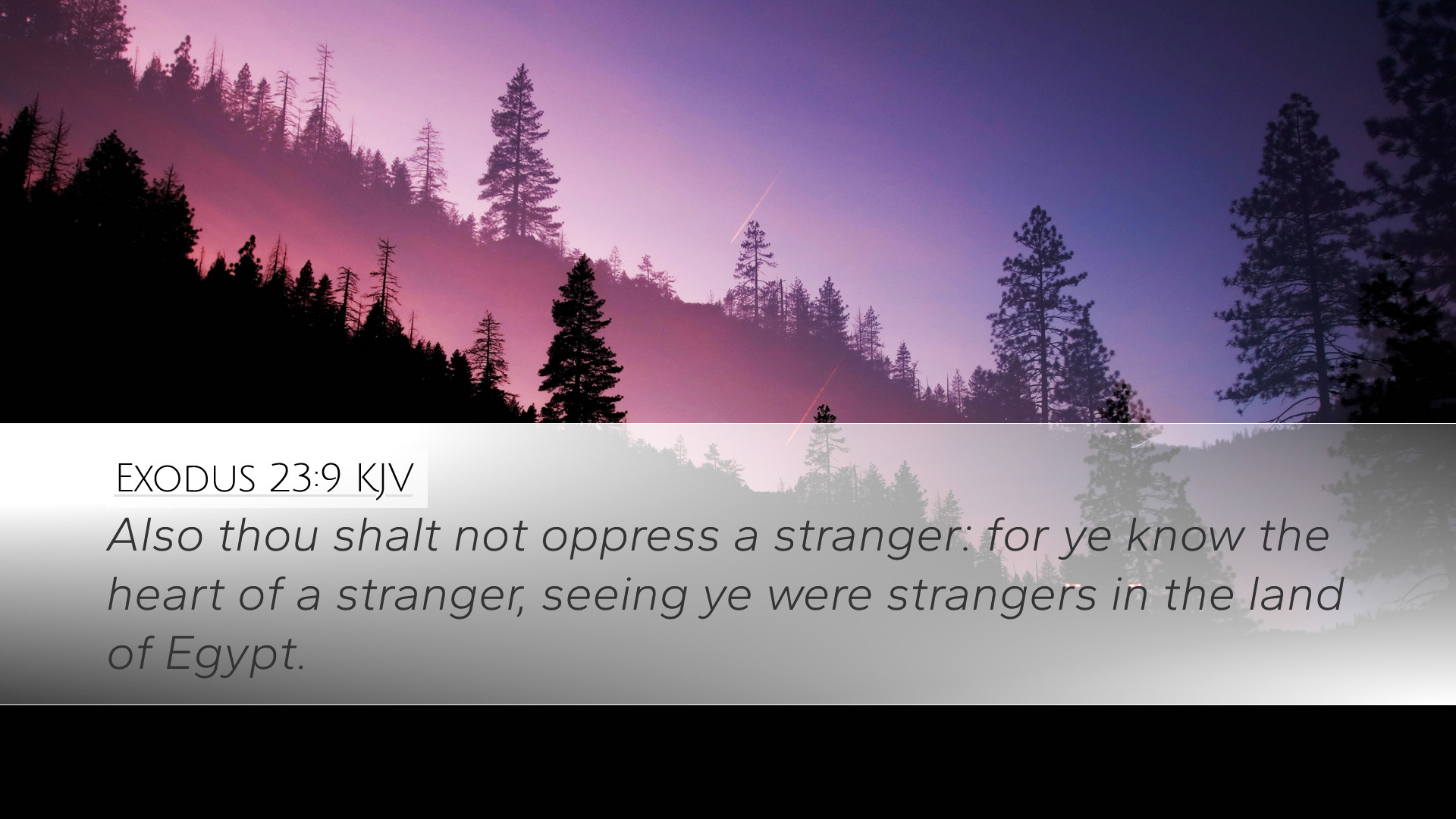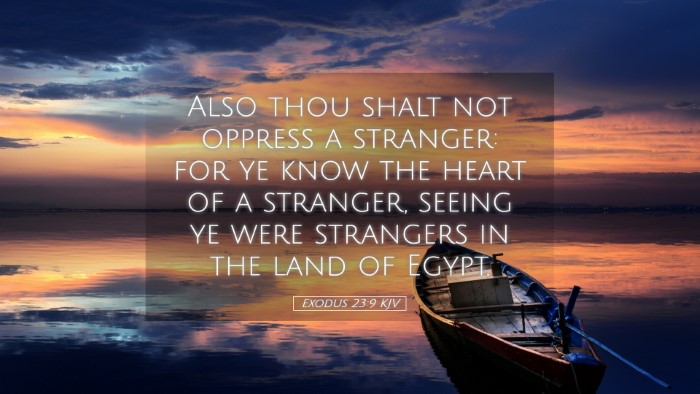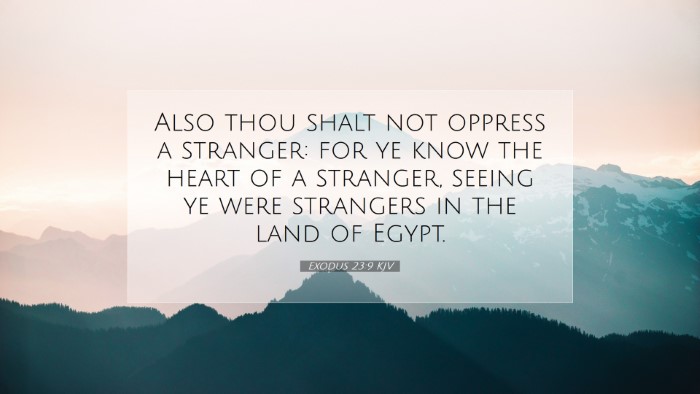Exodus 23:9 - Commentary
Text of Exodus 23:9: "Also thou shalt not oppress a stranger: for ye know the heart of a stranger, seeing ye were strangers in the land of Egypt: I am the LORD your God."
Introduction
The verse Exodus 23:9 encapsulates a vital principle in biblical ethics—compassion towards the stranger or foreigner. This commandment reflects not only God's concern for social justice but also serves as a reminder of Israel's own history of oppression in Egypt. The exodus narrative provides a foundational context for understanding God's covenantal relationship with His people and their responsibilities toward others.
Insights from Commentaries
Matthew Henry's Commentary
Matthew Henry emphasizes the ethical obligations embodied in this verse. He notes that "the stranger" refers to any foreign or marginalized individual in society, underscoring the idea of equality under God's law. Henry argues that the Israelites, having been strangers themselves, are called to empathize with those who might find themselves in similar circumstances. He suggests that this command is a call to practice justice and kindness, rooted in the memory of Israel's own hardships. The essence of the command is to cultivate a community that reflects God's character—one marked by mercy and compassion.
Albert Barnes' Notes on the Bible
Albert Barnes interprets the term "stranger" as embodying a broader category of individuals, including the poor and the socially marginalized. He emphasizes that this injunction reflects God's unyielding justice, demonstrating that His people are expected to uphold the rights of the vulnerable. Barnes highlights the phrase "for ye know the heart of a stranger," suggesting that the Israelites are reminded of their past suffering in Egypt. This awareness should engender a profound sensitivity and care for those who lack security and belonging. The remembrance of their own history acts as both a cautionary tale and an impetus for compassionate action.
Adam Clarke's Commentary
Adam Clarke approaches this verse by exploring the cultural and historical implications of the command. He notes that the ancient Near Eastern context often subjected strangers to harsh treatment, thus making this command revolutionary in its emphasis on equitable treatment. Clarke elaborates on God's authority as the judge of all nations, invoking the notion that oppression is antithetical to divine justice. He states that the Israelites should see themselves as representatives of God’s character, thus their treatment of others must align with God's righteousness. Clarke further insists that neglecting this could lead to divine displeasure and disfavor.
Theological Implications
This commandment found in Exodus 23:9 carries profound theological implications that echo throughout scripture. The principle of not oppressing strangers resonates in various other biblical texts, highlighting God’s protective stance toward the marginalized. As presented in Leviticus 19:34, "But the stranger that dwelleth with you shall be unto you as one born among you," we see a continual theme of inclusion and love for the stranger, underlining God's heart for justice and mercy.
Covenantal Context
The historical context of Exodus is pivotal; having endured oppression, the Israelites are now charged with exhibiting the opposite behavior. This responsibility symbolizes the original intent of the covenant—a community that mirrors the character of God. Their identity is intertwined with their past experiences of liberation, fostering a societal ethic aimed at protecting those who are vulnerable, seeing their plight as largely reflective of the biblical narrative of salvation.
Practical Applications for Ministry
For pastors, students, and theologians, Exodus 23:9 serves as a clarion call to embody the core values of compassion and justice across congregational practices. Here are some practical applications:
- Advocacy for the Marginalized: Churches and ministries can prioritize advocacy for the marginalized, creating programs that support immigrants, the poor, and the disenfranchised.
- Education on Social Justice: Incorporate teachings and discussions on social justice in church settings, highlighting the biblical imperative to care for strangers and the oppressed.
- Community Engagement: Engage with local communities to understand the challenges that strangers face, promoting partnerships that seek justice and mercy.
Conclusion
Exodus 23:9 is a reminder of the sacred duty to care for those who are strangers among us. The insights provided by historical commentaries such as those by Matthew Henry, Albert Barnes, and Adam Clarke guide us in understanding this commandment's depth and significance. As God's people, we are called to reflect His mercy and justice, actively opposing oppression in all its forms and embracing the transformative power of empathy born from our shared humanity. In living out these values, we bear witness to the character of God and fulfill our call to be agents of His love in a world that often overlooks the needs of the stranger.


